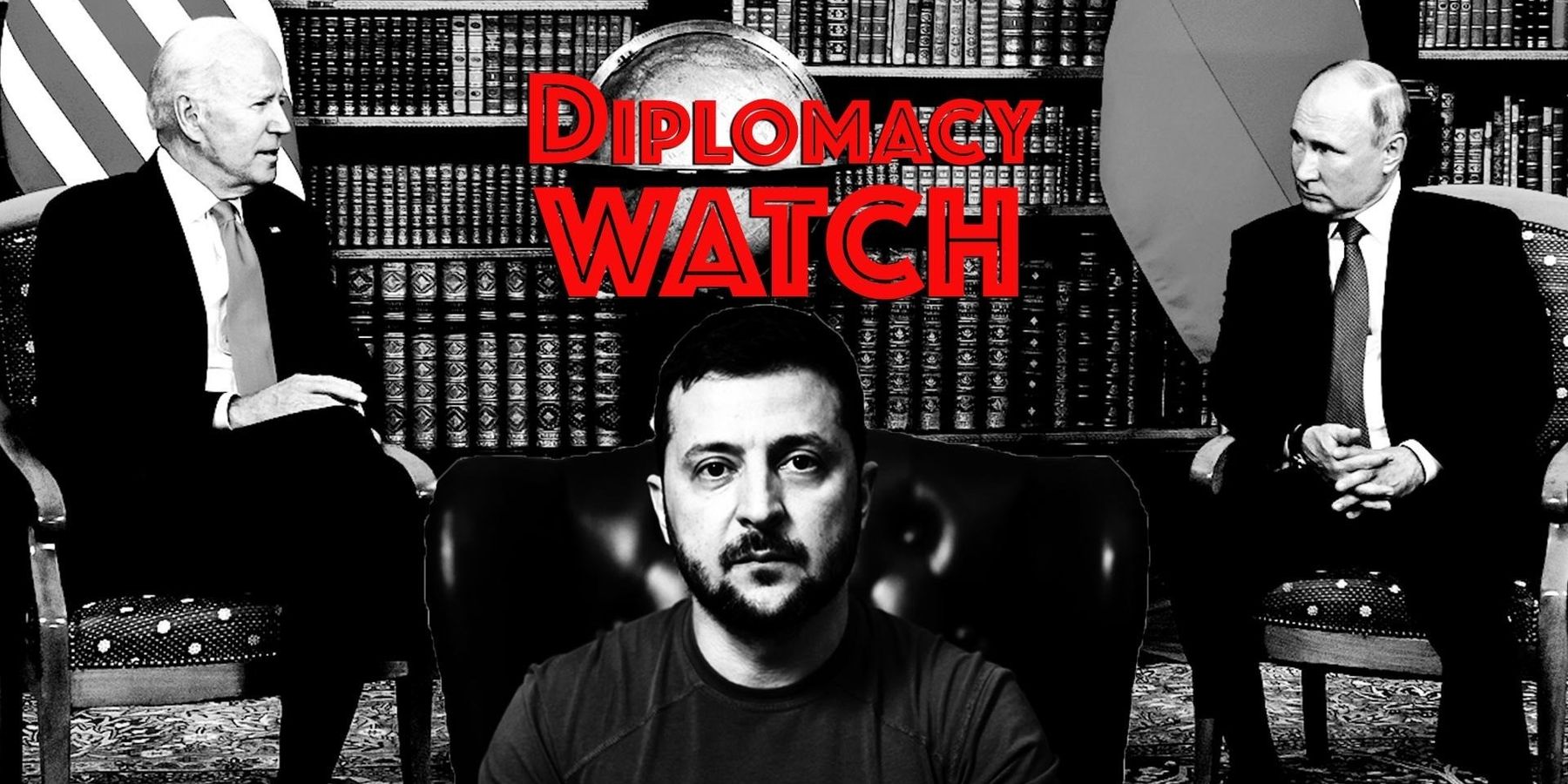Russia offered a peace deal in exchange for Ukrainian neutrality in talks last April, an offer that Ukraine rejected on the grounds that Moscow could not be trusted to uphold the deal, according to Davyd Arakhamiia, a Ukrainian politician who led Kyiv’s delegation to the negotiations.
“They really hoped almost to the last moment that they would force us to sign such an agreement so that we would take neutrality,” Arakhamiia said in a recent interview. “It was the most important thing for them. They were prepared to end the war if we agreed to — as Finland once did — neutrality and committed that we would not join NATO.”
The wide-ranging interview belies the Biden administration’s claim that talks were “not about NATO” and that Ukraine’s relationship to the bloc was a “non-issue.” It also adds nuance to the debate around former British Prime Minister Boris Johnson’s alleged role in scuttling the negotiations.
According to Arakhamiia, Johnson met with officials in Kyiv and “said that we would not sign anything with [the Russians] at all, and let's just fight.” However, the Ukrainian official denied that his team was on the verge of signing a deal — a decision he says could only have come from a direct meeting between the presidents of Ukraine and Russia — and insisted that Johnson’s comments were meant as advice, not a command.
Another reason for rejecting Russia’s proposal, per Arakhamiia, was that such a move would require an amendment to Ukraine’s constitution, which stipulates that the country intends to join NATO. Ukrainian officials have also previously cited Russian atrocities in Bucha as a key motive for pulling out of talks.
Arakhamiia’s comments suggest that Ukraine’s relationship with NATO will be a major factor in any future peace negotiations but highlight the political difficulties that Kyiv would face if it decides to offer neutrality in exchange for an end to the war.
“We can’t go to the negotiating table right now. We’re in a very weak negotiating position,” Arakhamiia added. “Why would we sit down for talks right now? What, let’s just stay where we are? Do you think Ukrainian society would accept that?”
Meanwhile, the war has largely ground to a stalemate in its second year, which has seen an uptick in casualty rates on both sides. Fighting will likely slow on the frontlines as Ukraine’s brutal winter sets in. (Just this week, a snowstorm in southern Ukraine killed at least 5 people.)
These factors, combined with Russia’s manpower advantage and wavering Western support, have created the conditions for a renewed negotiating effort, according to Anatol Lieven of the Quincy Institute.
“The full engagement of the United States in the peace process from the outset will be necessary if negotiations are to have any chance of success,” Lieven wrote in RS this week. “Only a U.S. administration can bring sufficient pressure to bear on the Ukrainian government, while also offering reasonably credible security guarantees for the future.”
“And only a U.S. administration,” he continued, “can threaten Moscow that, for some time to come, massive U.S. military and economic aid to Ukraine will continue, while at the same time offering the Kremlin compromises on wider issues of vital importance to Russia.”
In other diplomatic news related to the war in Ukraine:
— On Wednesday, U.S. Secretary of State Antony Blinken played down accusations that the West has a “sense of fatigue” in its support for Ukraine, arguing that “we must and we will continue to support Ukraine,” according to Reuters. The comments followed a NATO-Ukraine meeting in Belgium and were likely aimed at assuaging Ukrainian concerns that the war in Gaza will pull attention and resources from Kyiv’s fight with Moscow. Despite Blinken’s rosy take, it remains unclear whether the U.S. Congress will be able to pass a new Ukraine aid package over the opposition of many House Republicans.
— The U.S. believes that Russian President Vladimir Putin “won't make a peace or a meaningful peace before he sees the result of our election” in 2024, according to an anonymous senior official who spoke with reporters after the Brussels meeting.
— Polish truckers expanded their blockade of Ukrainian border crossings on Monday amid allegations that Ukrainian companies are undercutting their business and hauling goods within the European Union, according to Euronews. The protests, which have forced thousands of trucks into days-long waits at the border, are in part a result of the EU’s 2022 decision to cancel a permitting system that limited the number of Ukrainian trucks that could cross the border. While Polish truckers want to reinstate that system, Ukraine argues that Russia’s Black Sea blockade has made it impossible to adhere to the pre-war caps.
— Turkey will likely ratify Sweden’s bid to join NATO “within weeks,” according to the Swedish foreign minister. Turkish President Recep Tayyip Erdogan has long held up Sweden’s accession to NATO due to Stockholm’s relationship with Kurdish groups that Turkey considers to be terrorists as well as a series of protests in which far-right Swedish activists burned copies of the Quran, Islam’s holy book.
— Russian Foreign Minister Sergei Lavrov attended this week’s summit of the Organization for Security and Cooperation in Europe, leading some states to boycott the meeting, which is being hosted by NATO-member North Macedonia, according to AP News. Lavrov’s visit marks the first time that he has set foot in a NATO country since Russia’s invasion of Ukraine. Russian officials claimed that they have received “a lot of requests for bilateral meetings” on the sidelines of the summit, which brings together a wide swathe of European and Central Asian leaders.
U.S. State Department news:
The State Department did not hold a press briefing this week prior to publication.
















